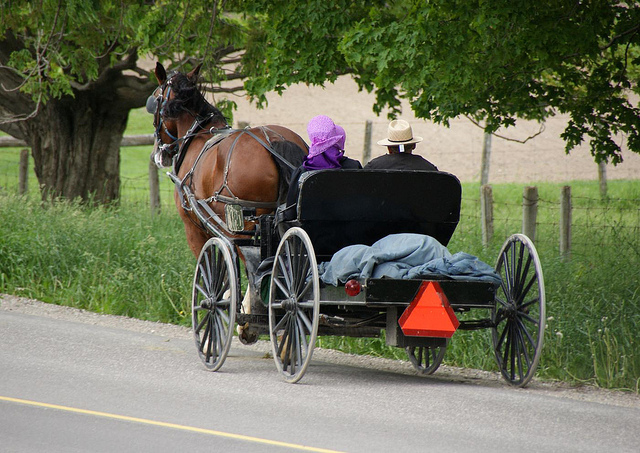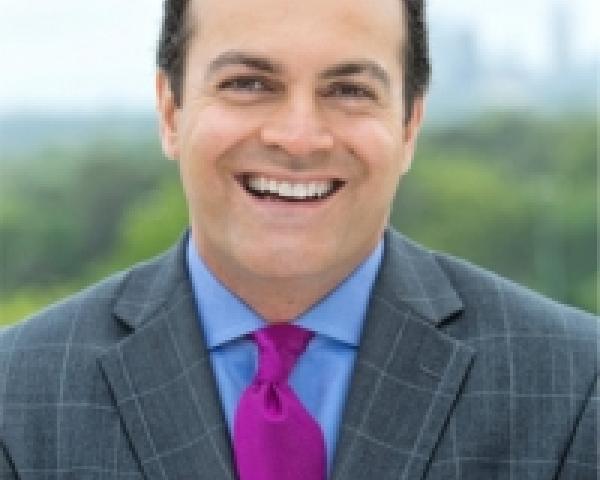As an adviser on behalf of the CEO and the board, I recently found myself working with an insurance industry executive suffering from FD&H Syndrome—that’s short for “Fat, Dumb and Happy.” You know the type—the classic myopic naysayer who would rather ignore every outside message and shoot every messenger than to stay lean, smart and open to new insights, including the necessary medicine that may not go down so tastefully?
Let me be clear: This is not a personal attack on one individual, but rather a call to awareness of a broader industry leadership concern. As such, here are several symptoms of FD&H I’ve observed in interacting with this executive over the past six months:
- Not Invented Here – If he personally, someone on his team or an industry insider didn’t think of something, it can’t possibly be viable. But isn’t it interesting how often Invented Elsewhere sparks real innovation?
- Smartest Guy in the Room – In several situations, he exhibits a rather obvious need to convey his intellectual prowess. No question he’s an intelligent individual, but astute leaders tend to listen much more than they pontificate.
- That Can’t Possibly Be True – Results of interviews with his staff highlighted key areas for improvement. For each, he had an excuse, a rebuttal or a personal attack against the perceived person who made the comment.
- Entirely Too Input-Oriented – Calls, meetings, focus groups and even some research are all means to an end. But he was so consumed by the input (what and how something was done) that he often lost sight of the outcome (desired business results).
- Paralysis by Analysis – “We need to further discuss that point at the next annual meeting,” “we’ll wait and see” and my favorite, “we need to have more people look into that point,” were all too common responses to uncomfortable findings. Great leaders are action-oriented!
- Don’t Have the Budget – Another common excuse that surfaces often with this executive is budget objections. “Don’t have it”– the budget for this tool, that person, this event or that effort – seems to be the de facto response. Don’t misconstrue my point – I’m a strong believer in financial stewardship of limited resources. In my experience, however, budgets are often an issue of setting priorities and seldom strictly a financial issue. Think about it – we’ll prioritize and invest in concerns or opportunities we deem to be important.
It probably won’t surprise you that this COO doesn’t care for outside consultants or advisers. After all, it takes them way too long to get up to speed on the insurance industry nuances, they couldn’t possibly have any good ideas and they often do little more than reiterate what we already know anyway! The first time I expressed my candid view that his product was stale and offered some ideas to reinvent a portion of his business, I got the facial equivalent of the Blue Screen of Doom. “Great, not interested,” he said. When I pressed for deeper insight, he added, “That’ll never work!” Why? “Because we tried it 10 years ago!”
What this executive with FD&H doesn’t realize is that he’s quickly working himself out of a job. You see, the board has brought in a visionary CEO who deeply believes in thinking and leading differently. He is out spending time with brokers, attending and speaking at industry conferences. He’s visiting with end clients with the agents and is writing insightful pieces as executive summaries to distribute across the industry.
Meanwhile, back at the ranch, the COO is busy covering his behind, demonstrating to peers and subordinates alike his lack of confidence in his operational stewardship. He seems particularly threatened by entrepreneurial thinking by people around him. Whatever his reasons, unfortunately what he is neglecting to see is that he’s a danger to his company, the firm’s clients and the industry. An organization with too many FD&H sufferers will die of stagnation. Allowing “Fat, Dumb and Happy” attitudes to exist within an organization—or worse, spread—leads to increasing irrelevance to your broker community, end customers, agents, investors and other stakeholders. Markets evolve, and so must you.
The cure: independent perspective
To prevent FD&H syndrome, regularly inoculate your key leaders with independent perspective. They must attend gatherings of senior executives at industry conferences and executive education sessions at respected universities. On a regular basis, they must invite thought and practice leaders (from both within the industry and outside) to host roundtable discussions or go off-site to work on the business and break the routine.
Unlike doctors, independent advisers make house calls. Consultants, thought and practice leaders alike can spark new ideas and unique perspectives and suggest a different lens through which to view the same challenges or opportunities. And if FD&H sufferers stand in the way, overtly or covertly sabotaging every attempt at forward motion, maybe it’s time to retire them to the irrelevant pasture they belong in. My favorite example from my COO interaction is his justification for inaction: “Look how much money I saved us!”
As professional interventionists, we come with no agenda. We’re not after anybody’s job. We often bring unique insights and, most importantly, independent perspectives. As outsiders, we can ask, say or do things others within the organization may not be able to for fear of political retribution. Mr. COO has been explicitly directed to evolve the organization, but his severe case of FD&H renders him powerless. I’m trying to give him the vaccine and guide him into alignment with his positional role to lead his organization’s evolution, but it appears my intervention is too late.
Invest in relationships that matter
Moral of the story? Time is an incredibly effective filtering mechanism. If this particular executive doesn’t change his irrational and protectionist behavior, he cannot continue to be employed by a forward-looking enterprise with a visionary CEO. (And, by the way, the CEO has recently replaced two other FD&H sufferers in the senior leadership team.) Those in the insurance industry who refuse to evolve, as their organizations must, are simply on borrowed time. Sooner or later, this myopic thinking or antagonistic posturing against outsiders will cause him to shoot himself in the foot. “Time wounds all heels,” the joke goes. In this case, the wound is to the entire organization, not just the heel.
The critical point for any of his direct reports, as well as several of us outsiders who are genuinely trying to help the organization move forward, is to continue to build productive relationships, up, down and across the organization. If I have the ear of the CEO and the mandate by the board to identify dysfunctions within the organization and recommend opportunities for innovative thinking, a more agile culture and growth strategies, I can appeal to the logical self-interest of this roadblock COO’s peers to think and lead differently.
Today’s global, always-on insurance industry is simply too competitive for sufferers of FD&H to last forever. When he’s gone, others will be there, ready to offer fresh and independent insights. For the organization, Fat will become Lean, Dumb will become Smart and Happy will be replaced with Results, as the organization leverages its greater efficiency and effectiveness.
Public health warning: If you recognize that someone in your organization is a sufferer of FD&H, don’t wait. Get help now.
Takeaways
1. Sufferers of FD&H Syndrome (Fat, Dumb, and Happy) are unacceptable baggage because the insurance industry is boarding maglev trains – and the FD&H folks are still searching for the horse & buggy!
2. The cure for FD&H Syndrome is frequently outsiders’ unique insights and independent perspectives.
3. Time will eventually remove FD&H sufferers, but not quickly enough to meet the demands of today’s agile insurance industry demands.






